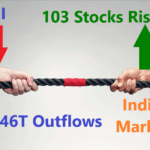Sebi, while probing Hindenburg Research’s accusations against the Adani Group, has recently reinforced its regulations concerning short selling. In this analysis, we delve into the concept of short selling, its advantages and disadvantages, along with an overview of Sebi’s latest adjustments.
India’s securities regulator, Sebi, has mandated that institutional investors must disclose if a transaction in Indian securities involves short selling upfront, while retail investors have to do so by the end of the trading day after the transaction. This information will be made public by stock exchanges, in compliance with a recent circular by Sebi. The Supreme Court’s directive to investigate potential unlawful short positions created ahead of Hindenburg Research’s report on the Adani Group has led to these new regulations. The article outlines the concept of short selling, its benefits, drawbacks, and the regulations governing it in India.
What is short selling?
The article describes the conventional method of making money through buying stocks and selling them at a higher price later, known as “going long.” It then explains short selling as the opposite—betting that a stock will decrease in price. Investors engage in short selling by borrowing shares from a broker and selling them immediately, with the expectation of buying them back at a lower price in the near future. If successful, the investor profits from the price difference, minus any loan interest.
What’s the purpose?
Institutional and wealthy investors use short positions to hedge their portfolios against potential stock price declines. Shorting stocks helps mitigate the risk associated with long positions, even extending to entire market indices. However, the article also highlights that investors engage in short selling for speculation, exposing themselves to high risk in pursuit of substantial returns, despite the potential for unlimited losses.
Understanding the Pros and Cons of Short Selling
In the world of stock trading, a traditional purchase offers potentially limitless gains with a capped loss. However, when one engages in short selling, this dynamic is reversed. The potential for gains is limited, as stock prices cannot fall below zero, while the losses could theoretically be unlimited due to indefinite price increases. Consequently, short selling is considered controversial, facing scrutiny from lawmakers and regulators alike.
Proponents of short selling argue that it serves to enhance market efficiency, liquidity, and the process of price discovery by considering adverse information or sentiments in stock prices. Additionally, it fosters skepticism and critical thinking among investors, as short sellers have a vested interest in uncovering corporate misconduct.
Regulations Surrounding Short Selling in India
Short selling in India is indeed subject to specific limitations. Naked short selling, the practice of selling shares before actually possessing them, is prohibited. This practice, also banned in the US, involves traders hoping that the shares will become available before the end of the clearing window, allowing them to purchase and close their short positions.
Moreover, not all securities in India can be shorted. Only those securities permitted by the exchanges to offer futures & options (F&O) contracts are eligible for short selling. Although the National Stock Exchange (NSE) lists over 2,000 companies, only 183 are approved for short selling.
New Sebi Regulations on Short Selling
On Friday, the Securities and Exchange Board of India (Sebi) announced new measures regarding the disclosure of short selling activities. These changes require all institutional investors to declare upfront whether their orders involve short selling. Additionally, retail traders must also disclose their short trades, with a deadline by the end of the trading session.
Stringent Reporting Requirements for Brokers
In addition to individual disclosures, brokers are now obligated to gather data on short positions and transmit it to the exchanges. The exchanges will subsequently publish this information on their websites. According to Sebi, brokers are mandated to compile details on scrip-wise short sell positions and upload the data to the stock exchanges before the start of trading on the following trading day. The stock exchanges will then aggregate this information and make it available to the public on a weekly basis. The regulator stated that the frequency of such disclosures may be subject to periodic review with Sebi’s approval.











